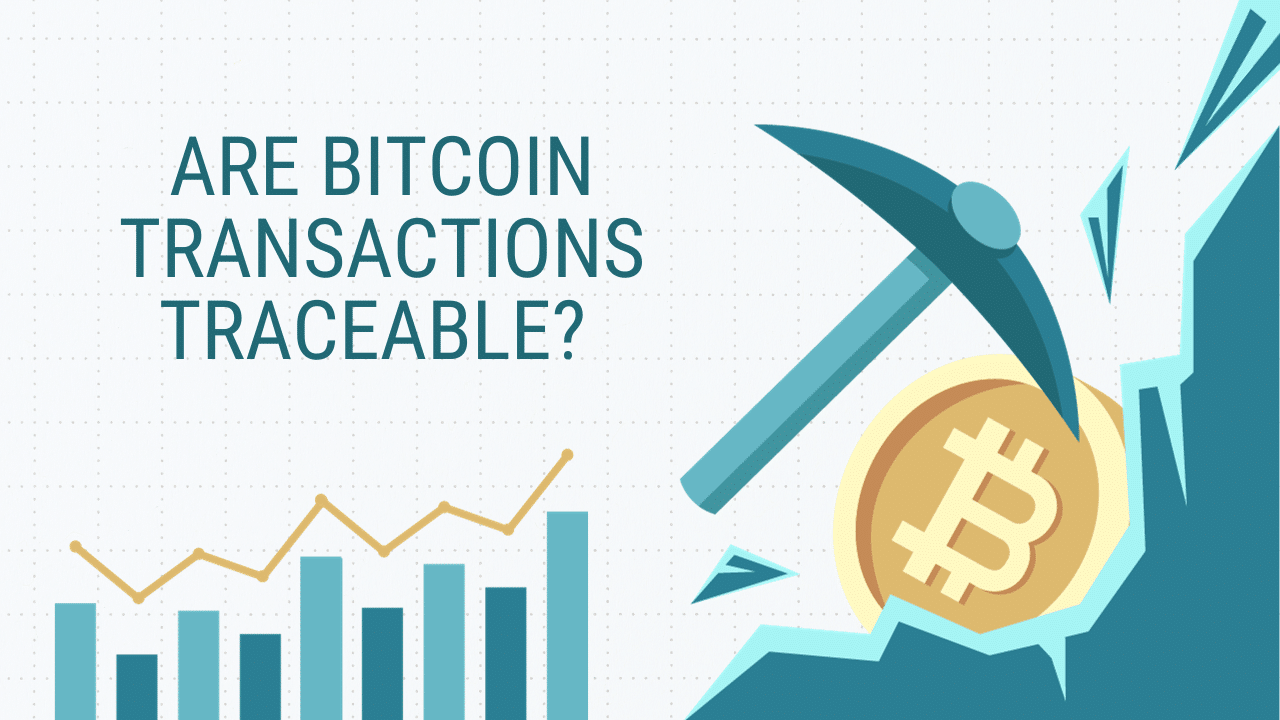Blockchain transactions are traceable through the decentralized ledger, allowing investigators to identify suspicious activities. Blockchain technology has gained significant attention in recent years, promising to revolutionize various industries.
One of its key features is its ability to provide a transparent, secure, and decentralized platform for conducting transactions. However, this has raised questions about the traceability of these transactions. Many people wonder whether blockchain transactions are truly anonymous and untraceable.
In reality, blockchain transactions are indeed traceable. By analyzing the blockchain, investigators can track the flow of funds and identify illicit activities, which has significant implications for law enforcement and regulatory compliance. Understanding the traceability of blockchain transactions is crucial for businesses and individuals engaging in cryptocurrency transactions, as it impacts their privacy and security. We will explore the traceability of blockchain transactions and its implications for the cryptocurrency landscape.
The Transparency Of Blockchain Transactions
Blockchain transactions are often perceived as being traceable due to the nature of the technology. The blockchain is a decentralized ledger that records all transactions in a transparent manner. This means that anyone can see all transactions in a public blockchain ledger.
However, it is important to note that while transactions are visible, the identities of the individuals involved may not always be immediately obvious. In the context of blockchain, anonymity can be achieved through the use of pseudonymous addresses. These addresses are unique strings of characters that represent a user’s identity on the blockchain. They are generated through a cryptographic process and are not directly linked to a person’s real-world identity.
While blockchain transactions are traceable to some extent, the level of anonymity or pseudonymity varies depending on the specific blockchain and its implementation. Investigators and law enforcement agencies can analyze the blockchain to trace the flow of funds and identify suspicious or illegal transactions. This can be useful in uncovering criminal networks involved in activities such as money laundering and fraud.

Tracing And Tracking Transactions
By analyzing the blockchain, investigators can trace the flow of funds and identify suspicious or illegal transactions, uncovering criminal networks involved in money laundering or fraud. Public blockchains are transparent, allowing anyone to view all transactions. Anonymity on the blockchain can be achieved using pseudonymous addresses generated through cryptographic processes, offering privacy. Bitcoin transactions are traceable as they are recorded on a public ledger known as the blockchain. The blockchain can record IP addresses, making transactions traceable by law enforcement, despite efforts for privacy.
Government And Legal Entities Involvement
By analyzing the blockchain, investigators can trace funds and identify suspicious transactions, uncovering criminal networks involved in illicit activities. Public blockchains are transparent, allowing anyone to access all transactions. Anonymity on the blockchain is achieved using pseudonymous addresses, and while law enforcement can track transactions, blockchain records IP addresses of users are not directly linked to real-world identity.

Bitcoin Transaction Traceability
Bitcoin transactions on the blockchain are indeed traceable, allowing investigators to follow the flow of funds and identify suspicious activities. Through analysis of the decentralized ledger, authorities can uncover illicit transactions, assisting in combating money laundering and fraud within the cryptocurrency space.
| Are Blockchain Transactions Traceable? Bitcoin Transaction Traceability |
| By analyzing the blockchain, which is a decentralized ledger that records all transactions, investigators can trace the flow of funds and identify suspicious or illegal transactions. This process allows them to uncover criminal networks involved in money laundering, fraud, or other illicit activities. Yes, anyone can see all transactions in a public blockchain ledger. This is because public blockchains are transparent, meaning that all transactions are recorded on the blockchain and are publicly accessible. In the context of blockchain, anonymity can be achieved by using pseudonymous addresses, which are unique strings of characters representing a user’s identity on the blockchain. These addresses are generated through a cryptographic process and are not directly linked to a person’s real-world identity. Bitcoin transactions can be traced as all the transactions made on the Bitcoin network are recorded on a public ledger called the blockchain. |
Protection Of Privacy In Bitcoin Transactions
By analyzing the blockchain, investigators can trace funds and identify illegal transactions. This process helps uncover criminal networks involved in fraud or money laundering. Public blockchain ledgers allow anyone to see transactions recorded transparently. Anonymity in blockchain transactions is achieved through unique pseudonymous addresses. These addresses are not directly linked to real-world identities. Bitcoin transactions are traceable due to public ledger recording. Despite the traceability, it is challenging to trace transactions back to IP addresses or identities.
Frequently Asked Questions For Are Blockchain Transactions Traceable
Can Transaction In Blockchain Be Traced?
Yes, transactions in blockchain can be traced through the decentralized ledger that records all transactions. This allows investigators to identify suspicious or illegal activities like money laundering and fraud.
Can Anyone See Blockchain Transactions?
Yes, anyone can see all transactions in a public blockchain ledger. All transactions are recorded and publicly accessible.
Are Blockchain Transactions Anonymous?
Blockchain transactions are not entirely anonymous. They use pseudonymous addresses, tying to a user’s identity on the blockchain. With analysis, investigators can trace and uncover criminal activities.
Does Blockchain Record Ip Address?
Yes, blockchain records IP addresses. Law enforcement can track transactions because all blockchain addresses are public. However, achieving practical anonymity is difficult.
Conclusion
Blockchain transactions are indeed traceable due to the decentralized ledger that records every transaction. This allows investigators to analyze the flow of funds and identify any suspicious or illegal activity. Additionally, the transparency of blockchain means that anyone can view the recorded transactions.
However, anonymity can be achieved through the use of pseudonymous addresses. Overall, while blockchain provides transparency, it also allows for tracking and tracing of transactions, making it a valuable tool for uncovering illicit activities.


